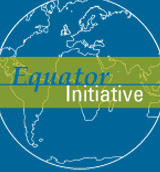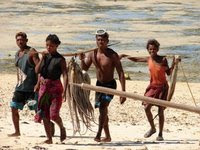 This week the village of Andavadoaka joins an esteemed list of 25 finalists for the United Nations Development Programme (UNDP) Equator prize, 2007.
This week the village of Andavadoaka joins an esteemed list of 25 finalists for the United Nations Development Programme (UNDP) Equator prize, 2007.
The prize recognises sustainable community initiatives in the tropics that help to reduce poverty through the conservation of biodiversity.
The remote community of Andavadoaka, Madagascar has been acknowledged for its work in partnership with Blue Ventures and the Wildlife Conservation Society (WCS), developing community run marine protected areas in the remote southwest of the country.
The initial closure of octopus no take zones in 2004-2005 proved so successful that neighbouring villages were keen to implement further conservation plans, and the Madagascar government used results from initial trials to develop national fisheries management legislation in 2005. Due to the success of the project local communities have now established plans for an MPA network incorporating 21 other villages in the region and covering 700km2.
 Andavadoaka and its conservation partners understand the inextricable link between the livelihoods of the local population and the health of the marine resources, and recognised that the key to success of the initiative is community involvement. Local villagers work alongside Blue Ventures and WCS research scientists to develop alternative sustainable livelihoods, including aquaculture businesses, the construction of a community owned eco-lodge, and the development of environmental education and ecotourism programmes.
Andavadoaka and its conservation partners understand the inextricable link between the livelihoods of the local population and the health of the marine resources, and recognised that the key to success of the initiative is community involvement. Local villagers work alongside Blue Ventures and WCS research scientists to develop alternative sustainable livelihoods, including aquaculture businesses, the construction of a community owned eco-lodge, and the development of environmental education and ecotourism programmes.
Andavadoaka hopes that the successes of its MPA programme will serve as a model for other villages, both in Madagascar and worldwide, demonstrating how local communities can protect their marine resources for the benefit of people and the marine environment.
The 5 winning initiatives are expected to be announced on World Environment Day, 5th June 2007.
For more information please see Blue Ventures Research Updates or www.andavadoaka.org

